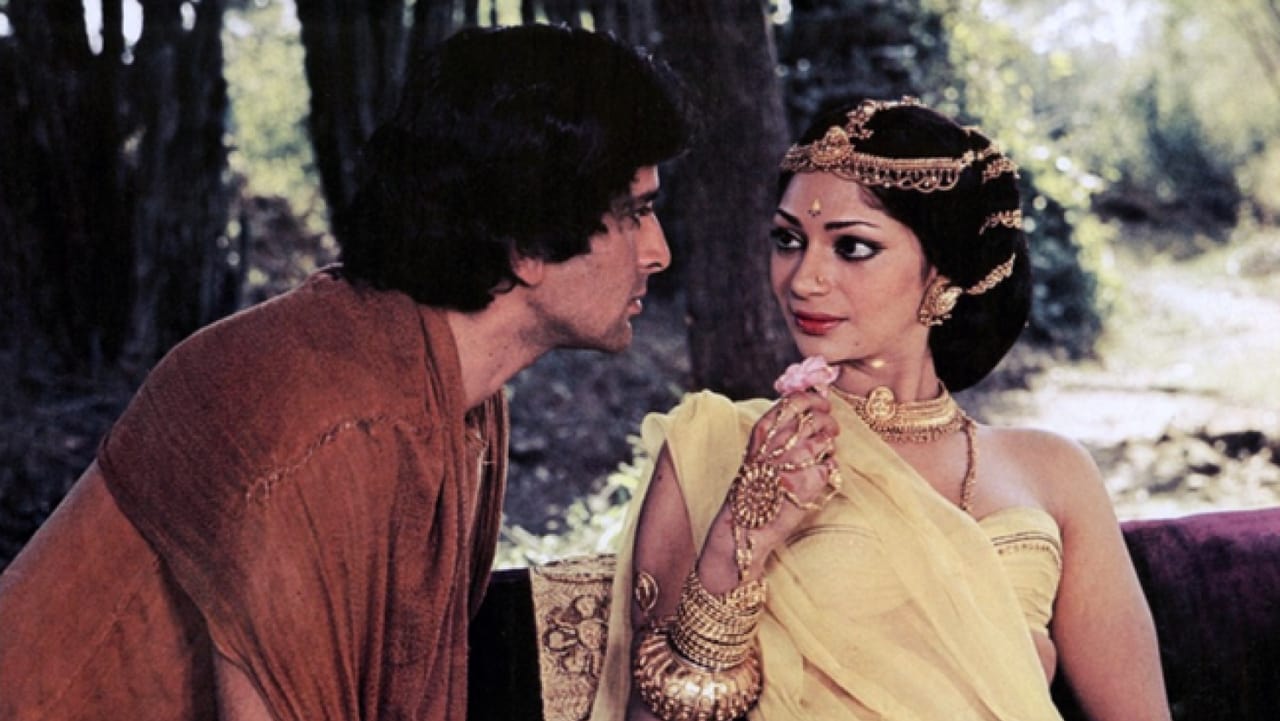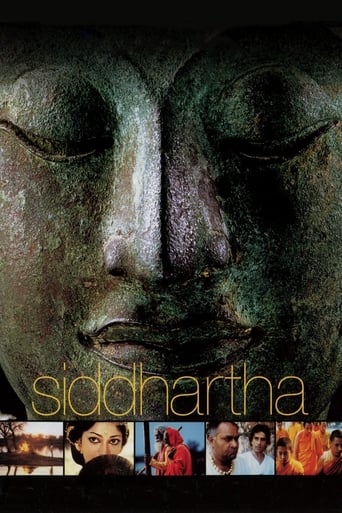

Buddha was born In Nepal not in India. How can they depict it as a story of young Indian. Serious attack on the existence of Nepalese. Very much disappointed by the movie description. India should claiming India as birthday place of Siddhartha Gautam Buddha because it is not. The real facts have to be depicted only if they are sure about it. I hate when wrong message is being spread so confidently.
... View MoreNot having read Hesse's novel, I went to see this film during its first and controversy-plagued release in Calcutta in 1976, purely for the music composed by my idol Hemanta Mukherjee. The film was certified by the censors as fit 'For Adults Only'. By Indian standards, I can see why.Regarding the music, 2 correspondents had flayed Hemanta Mukherjee in the Calcutta daily THE STATESMAN for having vulgarized Siddhartha's quest with two Bengali songs, each from a different, and earlier, Bengali film. True, one can wonder why Bengali in a film which has already used the convention of characters in ancient India speaking English. Imagine Achilles in TROY suddenly breaking into modern Greek while otherwise speaking English. However, the theme song on the river is unexceptionable contentwise. I am a little uneasy about the other song. Let us concede that for anyone who has seen the 2 Bengali films, the songs would come with their own distinct situational associations. This is my problem with the other song, as I had seen the Bengali original by the time I saw SIDDHARTHA.Watching the film again in the late 1980s at the Penultimate Picture Palace, Oxford, I had to confess to a sneaking sympathy with my cousin, who, in 1976, had dismissed the film as 'pavement philosophy'. The narrative struck me as potentially pretentious and quite unconvincing in its pontifications at times.The photography, however, is breathtaking,and the cast seem sincere in their performances. Incidentally, with reference to user gabravo123, at the PPP, Oxford, I think a bunch of Bengali students were the only viewers in a single row.Similar to his/her experience? However, the reason why not one of us moved as the closing credits rolled is because we were all mesmerized by the divine voice of Hemanta. For gabravo123's information, the two songs have been available on a 45 rpm disc since the late 70s, only there is no reference to the film on the disc. It is just titled HEMANTA KUMAR. They, I'm sure, are available now on CDs of the singer-composer's film songs. Incidentally, why does gabravo123 mention Rabindranath Tagore? I hope s/he is not implying that Tagore has anything to do with the lyrics, both of which are by the late Gouriprasanna Majumdar.
... View More...other than that no redeeming features. I didn't realise that this had been made circa 1972. I thought it was a new release in 2003. I thought it felt dated (and now I know why). The pace of the film was slow, and the acting...well, it was sort of like watching a high school play. Nice message, though, even if a little "preachy."
... View MoreThis is much smoother but less interesting than Conrad Rooks' other earlier and more cultish film, his drug autobiography `Chappaqua' (1966), which has cameos by Allen Ginzburg, William Burroughs, and jazzman Ornette Coleman in it. The trouble is `Siddhartha,' beautiful as it is, is a simplification of a simplification, and a spiritual quest isn't something you necessarily understand better through lush visuals, though unquestionably some of Sven Nykvist's watery landscapes with trees are unforgettable, the color is deep and rich, the music is pleasing, and the principals are awfully good looking people. Not surprisingly the high point cinematically is the sequence showing erotic encounters between the handsome lapsed sadhu, Siddhartha (Shashi Kapoor), and the lovely courtesan, Kamala. Simi Garewal, who plays Kamala, is a gorgeous creature whose lovely eyes, long aristocratic nose, and pouty lips remind one of the all-time arch teaser and sexy sophisticate of English films, Joan Greenwood. But Ms. Greenwood never was got up in the kind of exquisite gilded see-through gear Simi wears in her scenes with Shashi Kapoor. She's something to look at.When his buddy Govinda decides earlier to follow the Buddha, Siddhartha leaves Govinda bereft by deciding to go off on his own lone search, without a guru. It seems that the point is you must pursue your quest on your own. But Siddhartha's splitting with Govinda seems somewhat meaningless since at the end of the movie, Siddhartha has joined up with the peaceful boatman he met years earlier toward the end of his sadhu period, and he winds up spouting the boatman's words of wisdom: live in the present, stop seeking, don't worry, be happy, and watch the river. The Buddha apparently hasn't helped Govinda all that much either, since he meets Siddhartha again and also needs to be taught the boatman's simple doctrines. One can't help thinking they'd both have done better staying with the Buddha, who did, after all, found one of the world's great religions.It's rather amusing that during the two men's youthful sadhu period, when they're on the road with a group of penniless holy men, `meditation' is represented as singing rhythmically and passing a bong. My picture of this activity was different, but `Chappaqua' shows how obsessed with and involved in drugs Conrad Rooks was.This is a lovely, but empty and ultimately not very cinematic film. Sven Nykvist's photography is at the service of a vision so generalized (Siddhartha is a universal type, not an individual), that too often the images look like something out of `National Geographic' with mise-en-scène by Bollywood. The scenes are not as exotic as those Pasolini created for his `Arabian Nights' (1974), nor are Rooks' depictions of Indian rural life ever remotely as real as Satyajit Ray's in the `Apu Trilogy.' For a trippier film version of Hermann Hesse, see Fred Haines' `Steppenwolf,' which came two years after `Siddhartha,' in 1974. For a more original film depiction of a spiritual quest, see the story of G.I. Gurdjieff as done by Peter Brooks in `Meetings with Remarkable men' (1979).
... View More